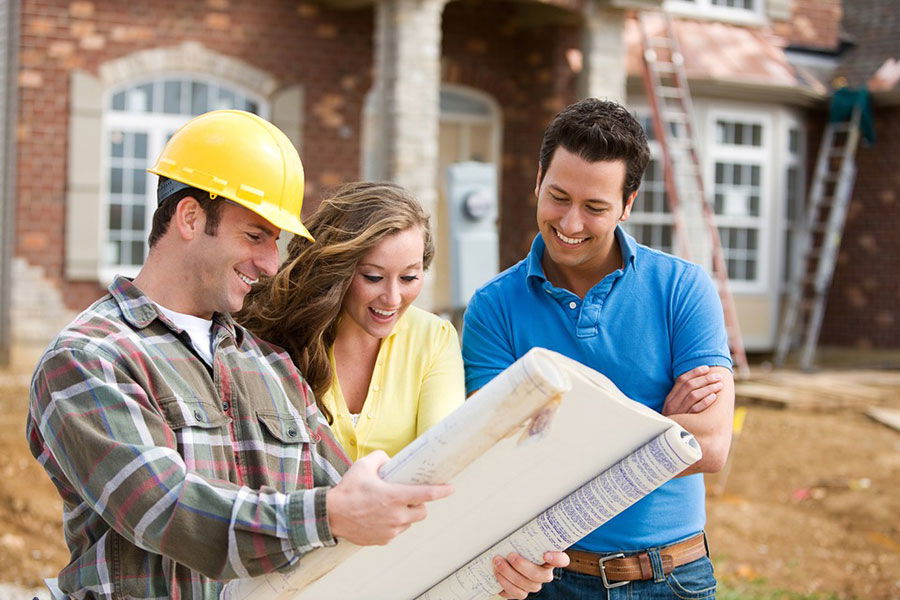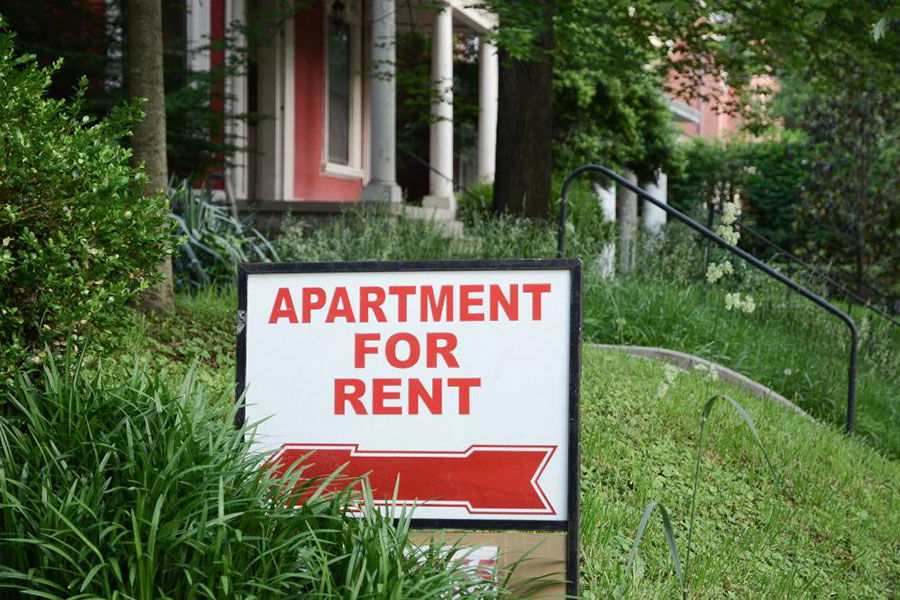As a first-time seller, you may be surprised by how much it costs to sell your house. You’ll have to pay for home improvements, inspections, and even eating out during last-minute showings.

As so many millionaires know, you have to spend money to make money. However, the trick is knowing just how much to spend and where to spend it. Unfortunately, regardless of what you spend, your house will only ever be worth so much because of factors beyond your control.
Costs of Selling a House
As you’ll see, some home selling costs are absolutes, and others are up to you. Of course, you’ll likely sell your home faster if you spend more, but your return will be lower.
Inspections, Repairs, and Routine Maintenance
The seller is always the one who has to pay for an inspection when a buyer makes an offer. This is fair if you think about it. In any home inspection, an inspector will be looking at your home’s:
- Air conditioning
- Attic
- Basement
- Doors
- Electrical systems
- Foundation
- Insulation
- Plumbing
- Roof
- Windows
If you know your house has issues with any of the above, the question is whether to fix it before or after the home inspection. Rather than doing home repairs, you could just drop the price to compensate. However, that’s not appealing to some prospective buyers.
Why not?
Most people buying houses these days aren’t making large down payments because they can get away with smaller ones — as low as 0% to 3.5%. With this economy, many people don’t have a lot of money saved up.
You may be offering them a cheaper house, which will save them money in the long run. However, that doesn’t mean they’re going to be able to afford $8,000 for a new roof after closing.
So, it depends on the size of the repair. Little things can probably be put off (unless they’re cosmetic and will turn away buyers). However, larger ones should be dealt with beforehand if you actually want to sell your house.
Lastly, if you have a septic tank, you’ll need to get it pumped. Depending on where you live, this can cost around $250 to $300. No need to pump it before you’ve listed it, but know that you will have to have it cleaned before you go.
How much will a home inspection cost?
The cost of an inspection varies depending on how large your house is. If your house runs a little small, the average cost is around $200. However, if your house runs on the larger side (say over 2,000 square feet), expect a minimum of $400.
What are the typical closing costs for a seller?
Sellers typically pay the real estate agent commissions for both the seller’s agent and the buyer’s agent. That means they’ll have to pay 6% of the final purchase price. Here’s a rundown of estimated closing costs for houses in the mid-$300s to the $200s:
- $350,000 = $21,000
- $325,000 = $19,500
- $300,000 = $18,000
- $275,000 = $16,500
- $250,000 = $15,000
- $225,000 = $13,500
- $200,000 = $12,000
Closing costs are one of the most significant factors to consider before deciding what kind of renovations to do. Combine this with your current principal (if you have one) to calculate how much you can afford to put into your house.
Regardless of how well off you are, if doing a renovation means losing money, then it simply doesn’t make sense. However, if your house sits on the market for a long time, it may be worth it, depending on how anxious you are to sell.
Other potential closing costs for sellers
After inspection and real estate agent commission, there are some things that sellers may have to deal with at the end of a real estate transaction:
- Home warranty: It’s not done as often as it used to be, but many sellers offer home warranties for a year to put buyers more at ease. A basic warranty can range between $350 to $600, but for advanced coverage, the total can come to about $1,000.
- Recording fees and transfer tax: Some sellers offer to pay recording fees or transfer taxes that the buyer would normally have to pay in their county for purchasing a home. The total price for this varies from state to state.
- Title insurance premium: Sellers will often pay for title insurance should any issues arise with the official title in the future. The cost to do this also varies state by state and county to county, but generally runs at 0.005% of the selling price. So, a $250,000 house would run around $1,250.
- Property taxes, homeowners insurance, and HOA fees: For any fees a buyer would have to pay for the months before they bought the house, sellers will sometimes offer to compensate for any discrepancies with buyers. The cost for these will vary depending on the county and neighborhood.
Potential Upgrade Expenses for Sellers
Upgrades are a hot topic when it comes to selling a house. Some real estate agents will tell you that your house needs certain features to sell, while others will tell you not to do anything.
Ultimately, the decision to spend money on upgrades before selling your home depends on many factors. The biggest ones are your cash flow, the neighborhood you live in, the surrounding competition, and how quickly you want or need to move.
Let’s go step-by-step through some of the most common upgrade expenses so you can find out if they’re suitable for your situation.
Here’s the thing. You don’t need new countertops to sell a house. However, because of a certain channel on cable TV, potential buyers expect your house to have them.

Keep in mind, when we say countertops, we don’t mean something clean and ‘new’ looking from Lowes or Home Depot. ‘New’ countertops these days mean one thing and one thing only to buyers: marble.
Many houses sell every season without updated marble countertops. However, if your house is in a competitive pricing market, many people expect nothing but the best in your kitchen and bathrooms.
How much do new countertops cost? Like any home renovation, you can pay anything you want, but most marble makeovers run homeowners between $2,000 and $3,000. So, again, is this update essential? Definitely not. But if you’re seeking a quick home sale, the places you always want to put your money into are your kitchen and master bathroom.
New Appliances
Your job as a seller is about meeting as many buyers’ expectations as you can afford. Do you need new appliances to sell a house? Of course not, but it’s always nice to see a house filled with modern appliances. And by today’s standards, “modern” typically means stainless steel. If you’re already planning an upgrade, this is an excellent way to go.
Still, if you’re going to update your appliances to sell your home more quickly, make sure your wallet can handle it. Depending on the quality of the appliance you choose, expect to pay between $400 and $2,000 for each machine.
New Flooring
Do home buyers want new flooring? It depends on the state of your flooring. Believe it or not, buyers tend not to be as haughty with this as with other things. If you have kids and your carpet has stains from grape juice or pets, the most you’ll want to do is offer a carpet allowance.
Depending on the square footage, most home buyers are urged to spend from $1,000 to $2,500. However, this won’t be enough for most houses. For example, carpet can cost a bare minimum of $2 a square foot. This expense goes up even more if you add installation and removal into the equation.
That being said, a $2,500 carpet allowance will go a long way towards a new carpet for most home buyers. They can then pick what they want or use the money for something else entirely. Plus, it comes out of your funds at closing, so you don’t have to worry about paying the cash upfront.
Before you start calling contractors, be realistic about the return. Though there’s no hard science behind it, your house isn’t likely to sell for 100% of the home’s sale price. There are a few places where buyers can expect this kind of return, but this isn’t realistic for most people.
Return on Your Investment
Your house is unlikely to get a bidding war unless you live in an area where jobs are pouring in, but there aren’t enough housing options. Some analysts suggest a 9% drop from the initial asking price, whereas others only 5%. So if you’re selling a house for $300,000, but your principal is only down to $280,000, think twice before pouring money into renovations.
Some quick math:
91% of the asking price for a $300,000 home = $273,000
95% of the asking price for a $300,000 home = $285,000
Again, this isn’t difficult, but is rather a mix of hearsay and experience. Definitely don’t drop the home sale price to match the numbers above! That’s the buyer’s job. If you drop it, your final selling point will likely be even lower.
Capital Gains Tax
Capital gains taxes are taxes that are imposed when selling a home. These taxes are based on the difference between the purchase price of the home and the sale price of the home.
If you sell a home for more than you paid for it, it counts as a capital gain. So, you may need to report it on your federal tax return. However, most homeowners are eligible to exclude up to $250,000 of profit ($500,000 for married couples filing jointly) if it’s their primary residence.
You only get this tax break if you haven’t taken it on another home sale within the past two years. Moreover, you must have lived there for at least two out of the previous five years.
Cash for Your Next House
When you make an offer on a house, you have to put down what is called an ‘earnest money deposit.’ Such a deposit prevents you from making multiple offers on houses and shows the seller that you are sincere about buying.
Earnest money deposits are usually around 1% to 2% of your offer. Here’s a breakdown of payment amounts for a range of house prices:
$350,000 = $3,500 to $7,000
$325,000 = $3,250 to $6,500
$300,000 = $3,000 to $6,000
$275,000 = $2,750 to $5,500
$250,000 = $2,500 to $5,000
$225,000 = $2,250 to $4,500
$200,000 = $2,000 to $4,000
The actual amount of the deposit varies on where you live. Certain states have caps on how much can be put down. Sometimes sellers will request a flat rate on all offers. In cases like these, the real estate market is usually pretty hot. If the house is in an affluent neighborhood, the deposit can range from $5,000 to over $10,000. For everyone else, 1% to 2% is the norm.
Moving Costs
Whether you’re moving down the block or across the country, there are several factors that can influence your moving costs. From hiring professional movers to renting a moving truck, the cost of your move may depend on the distance you’re traveling, the number of household items you’re relocating, and the season.
A full-service move for a three-bedroom home locally may cost anywhere from $760 to $1,000. A DIY move may cost significantly less, but you’ll need to factor in the cost of renting a truck, gas, boxes, and packing materials. Plus, if you’re moving during the summer months, be aware that prices may be higher due to increased demand for moving services.
Home Selling Costs FAQs
How much does it cost to sell a house?
The cost of selling a house varies depending on the location and condition of the home, the amount of work involved in the sale, and the services used. Generally, home sellers can expect to pay between 5% to 10% of the total sales price in costs associated with the sale.
What are the main costs associated with selling a house?
Common costs associated with the home selling process include real estate agent commissions, seller closing costs, home improvements, taxes, and legal fees.
Are there any tax implications when selling a house?
Yes, you may owe capital gains tax on the profit made from the sale of your house. The amount you will owe will depend on your individual tax situation.
How can I reduce the costs associated with selling a house?
One way to save money is to list your house as a “for sale by owner” (FSBO) which can save you the real estate commission. Additionally, you can shop around to find the best deal on services such as appraisals, inspections, and title insurance.
Do I need to hire a real estate agent when selling a house?
While it is not required to hire a real estate professional, it can be beneficial. A real estate agent can help you market your house, negotiate the sale, and deal with the paperwork associated with the sale.
How long does it typically take to sell a house?
A6: The amount of time it takes to sell a house can vary depending on various factors such as the location, price, and condition of the home. Generally, it can take between 1–3 months to sell your home.
Are there any ways to get a higher sale price for my house?
Yes, there are several ways to get a higher sale price for your house. Making improvements to the home, staging it for showings, and pricing the house competitively are all ways to potentially increase the sale price.
Bottom Line
There’s no perfect answer to how much it costs to sell your house. The cost to sell a house is different for every seller. There are so many factors to consider throughout the selling process.
Some of the largest mandatory expenses come in the form of real estate agent commission fees, inspections, and related home repairs. Furthermore, consider any buyer’s closing costs you decide to cover. Being prepared in advance can avoid any unpleasant surprises down the road.




